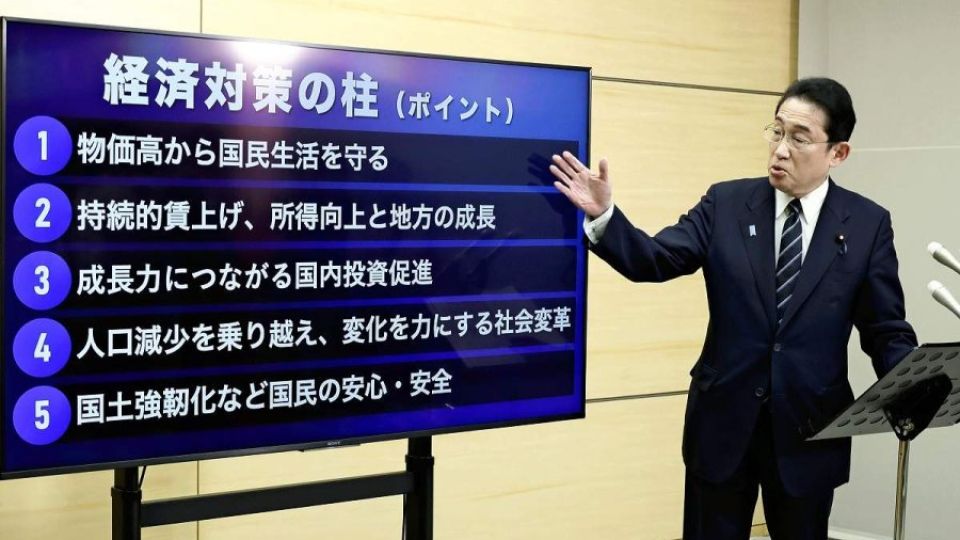September 26, 2023
TOKYO – Prime Minister Fumio Kishida announced Monday an outline of economic measures, with plans to reach a final decision on the steps by the end of October.
Kishida also asked the policy chiefs of the Liberal Democratic Party and Komeito to come up with recommendations soon for the economic measures.
“The economic measures have two purposes,” Kishida said. “The first is to ensure that increased tax revenues, which are the result of economic growth, are appropriately returned to the people who are suffering from the high prices. The second is to provide strong policy support to help Japan’s economy make a historic turnaround from a cost-cutting-focused economy for the first time in 30 years.”
The outline reflects concerns that the rise in prices is significantly impacting people’s lives and putting downward pressure on consumption. It emphasizes that the government will accelerate the realization of a “virtuous cycle of growth and distribution” by strengthening the flow of structural wage increases and investment expansion.
Specifically, the main pillars of the measures were countering high prices and solidifying the economy’s footing; strengthening the flow of structural wage increases and investment expansion; reforming society to overcome the decline in population; and ensuring the safety and security of the Japanese people.
In terms of steps to address high prices, the outline has indicated that it will take “priority measures” for electricity, city gas, and fuel oil such as gasoline. The focus will be on whether to extend the current subsidy program beyond this year.
The economy stagnated due to the pandemic but is now starting to recover. The government will work to increase the number of foreign tourists visiting Japan and expand exports of agricultural, forestry, and fishery products, saying it is necessary to spread this trend to regional areas as well.
In terms of increasing wages and investment, the government will consider making continuous wage increases a requirement for subsidies for companies that focus on improving productivity. Support for reskilling workers and promoting startups is also planned.
In an effort to encourage domestic production of crucial materials such as semiconductors and storage batteries, the government envisions establishing new tax breaks for targeted companies.
Regarding social reforms to counter population decline, the outline indicates the intention to promote “digital administrative and fiscal reforms” to improve the efficiency of municipal operations. The 2024 problem refers to a possible shortage of truck drivers as a result of limits on overtime work that will be imposed next April. To address this issue, discussions will be needed on improving drivers’ compensation and implementing regulatory reforms.
On the subject of steps to ensure safety and security, the outline cited measures surrounding the ocean release of treated water stored at Tokyo Electric Power Company Holdings, Inc.’s Fukushima No. 1 nuclear power plant, disaster prevention and mitigation, and the promotion of national land resiliency.
Kishida will ask his Cabinet ministers to compile the measures and, after coordinating with the ruling parties, aim to formulate final economic measures by the end of October.

